“We Did What Had to Be Done”
I worked with ArtXpress — a program for teens through the Milwaukee Art Museum — as an intern for three weeks over the summer. Our mission was to choose a […]
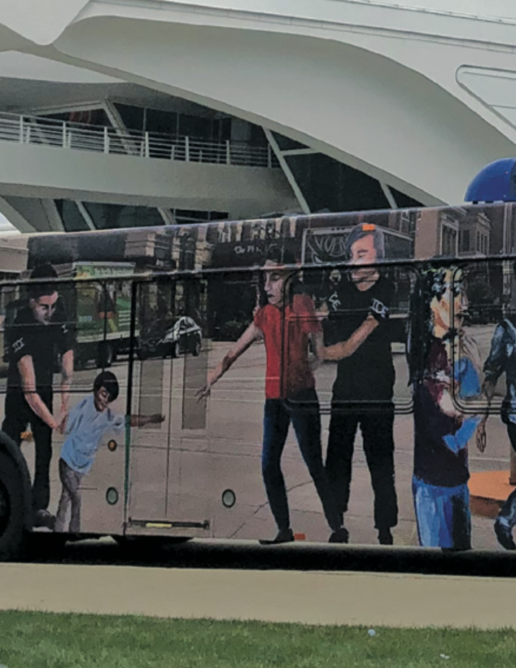
I worked with ArtXpress — a program for teens through the Milwaukee Art Museum — as an intern for three weeks over the summer. Our mission was to choose a […]
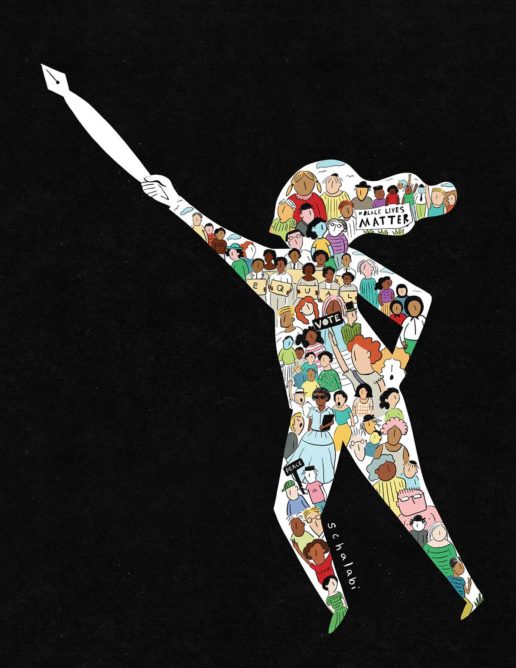
A high school English teacher deconstructs “Hero’s Journey” curriculum, shows its patriarchal prejudice, and talks about teaching collective rather than only individual transformation.
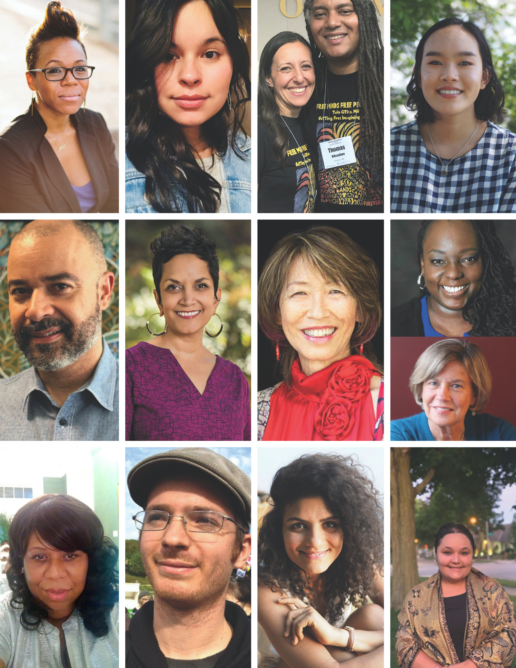
We asked a group of radical educators to weigh in on what they hoped would be part of any 2020 presidential candidate’s education platform.
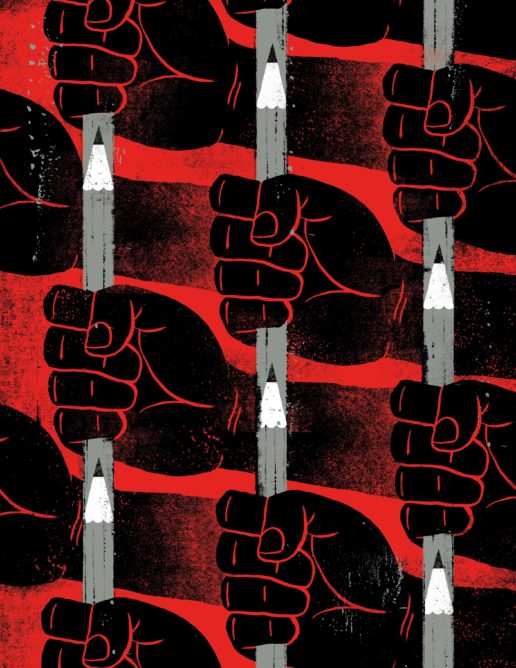
A Connecticut educator who taught English to incarcerated young men for 20 years describes what happened when she introduced her students to the Canadian “Leap Manifesto.”

The latest installment of our Earth, Justice, and Our Classrooms column looks to a piece of very good news that national media missed following the 2018 midterm elections. By a margin of almost two-to-one, tens of thousands of Portland, Oregon, voters approved an imaginative clean energy initiative that offers a model for the rest of the country — at the ballot box, but also in our classrooms.
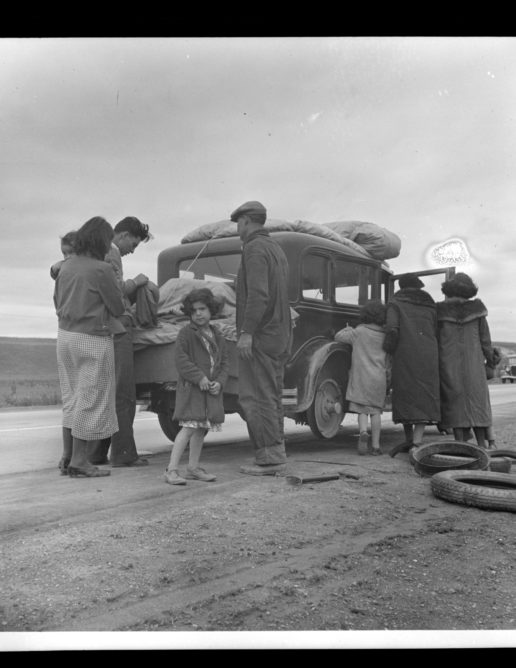
A social studies teacher describes the role play trial she developed around a largely forgotten period: when during the Great Depression the United States deported thousands of Mexican American families.
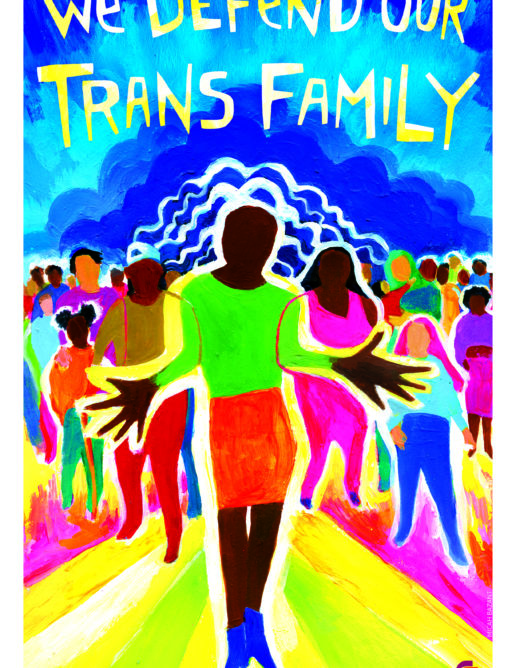
What can teachers, schools, and districts do to meet the needs of trans students? To make them visible? To keep them alive? To celebrate them?

An elementary school teacher developed the Quetzal Conundrum game to help students understand the impact of global warming in Costa Rica.

The third installment of our new environmental justice column celebrates the annual two-day Climate Justice Fair at Madison High School in Portland.
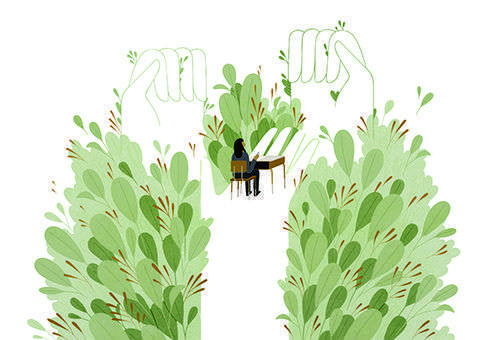
How we seed and support student activism will vary from community to community, school to school, and grade level to grade level. But this is a crucial moment in history, and what we do as educators matters. When we help students explore and analyze exploitation, injustice, and danger in the world, we can also help them develop the knowledge and skills to change it.
Trump supporter Carl Paladino’s racism, misogyny, and transphobia galvanized community members to oust him from the Buffalo School Board. Their struggle also laid the groundwork for new coalitions and progressive change.
“We have something to tell you but we’re worried about getting you too involved. We don’t want to get you in trouble,” Baylee and Zaida whispered excitedly as they wiggled through the crack in my classroom door on my prep. I was confused to see them in such high spirits because earlier in the day they had been crushed by news from our administration. For more than two months they had been part of our Restorative Justice club that had been planning two half-day workshops around women empowerment for female-identifying students and toxic masculinity for male-identifying students. The club of 11 demographically diverse students had been urging adults in our building to do something about sexual harassment since October, when they made sexual assault and harassment their Restorative Justice club theme of the month and visited 9th grade classes to lead circles on the topic. This opened up a door for 9th graders to continue to reach out to upperclassmen about the harassment they were facing.
The ongoing, persistent verbal and physical violence against women, youth, and LGBTQ communities has not been adequately addressed in most schools. Instead of educating children and youth about gender equity and sexual harassment, schools often create a culture that perpetuates stigma, shame, and silence. Student-on-student sexual assault and harassment occurs on playgrounds, in bathrooms and locker rooms, on buses, and down isolated school hallways. Students experience sexualized language and inappropriate touching, as well as forced sexual acts. And they encounter these at formative stages of their lives that leave scars and shape expectations for a lifetime. What isn’t addressed critically in schools becomes normalized and taken for granted.
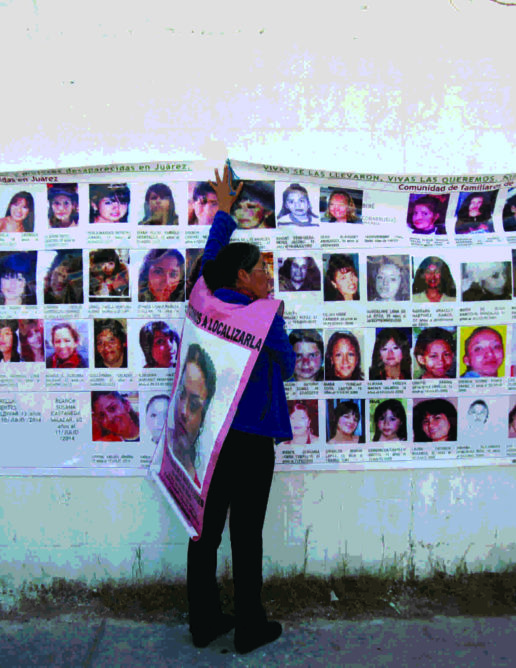
Since 1993, the Mexican border city of Ciudad Juárez has been shaken by disappearances of teenage girls and young women. Officials say they have few leads. The murders in Juárez have received some international attention, primarily due to government inaction. Yet little has been done by the government to prevent violence against women and girls, as officials neglect to bring their perpetrators to justice.
Residents do not let these deaths go unnoticed as hundreds of pink crosses — a symbol of these missing women — dot the border. An increase in these deaths coincided with the implementation of the North American Free Trade Agreement (NAFTA). A treaty between Mexico, the United States, and Canada, NAFTA sought to increase investment opportunities by eliminating tariffs and, like many other economic agreements, benefited the economic elites of the three countries while resulting in widespread unemployment, increased class stratification, and mass emigration. Most of the “disappeared” women work in assembly plants or maquiladoras, owned by the United States and transnational corporations that dashed to northern Mexico post-NAFTA to reap the benefits of lower wages and lax environmental regulation.

It has always been an educator’s responsibility to act in solidarity with vulnerable students. But with President Donald Trump’s September declaration that he will end DACA, we are called on to be more audacious, more resolute, and more imaginative in our solidarity with the 800,000 undocumented young people who now face a frightening uncertainty about their future in the United States.
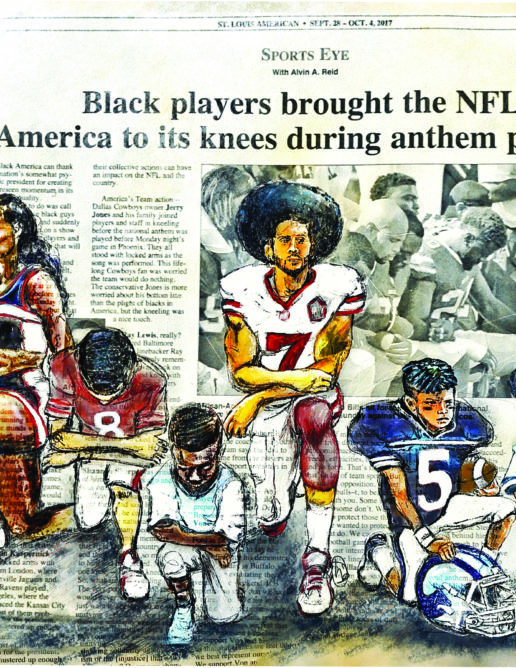
In the initial weeks of the 2016 football season, as Kaepernick’s fledgling protest began to take shape, critics bombarded him with insults and it was unclear what the response around the country would be. And that’s when Garfield, and high schools and students around the nation, stepped up to the challenge.
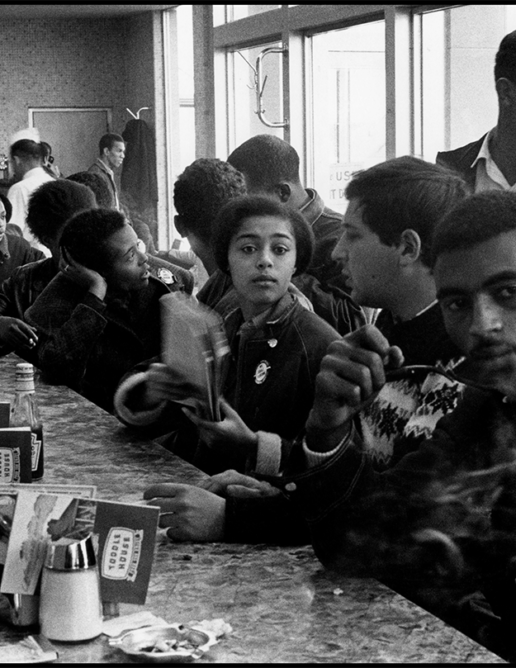
Teaching the history of the Student Nonviolent Coordinating Committee helps students see the Civil Rights Movement as being fueled by thousands of young people like themselves instead of a few charismatic leaders. “Without the history of SNCC at their disposal, students think of the Civil Rights Movement as one that was dominated by charismatic leaders and not one that involved thousands of young people like themselves. Learning the history of how young students risked their lives to build a multigenerational movement against racism and for political and economic power allows students to draw new conclusions about the lessons of the Civil Rights Movement and how to apply them to today.”
“Ugh, Dress Codes!” The title of one of 15-year-old Izzy Labbe’s SPARK Movement blog posts encapsulates what I’ve heard so many girls say they feel about their middle and high […]
Two days after the election, 21 plaintiffs, aged 9 to 20, won a critical court ruling on the constitutional obligation of the U.S. government to protect our children’s right to […]
Repensando las escuelas nació en la era de Reagan. Celebramos nuestro décimo tercer aniversario en la era de Trump. Sabemos algo acerca de mantenernos esperanzados durante los tiempos difíciles. Hace […]

The youth on our cover is Lana “kQween” Grant. She was photographed by Lois Bielefeld as part of her Androgeny series. kQween’s pride—and the empathy and respect of Bielefeld’s image—are […]
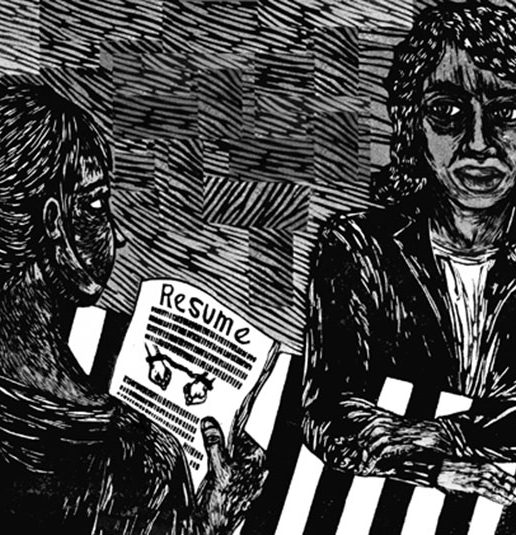
Should the box about criminal history be eliminated from job applications? A role play helps students explore the lifelong impact of a felony conviction.
“
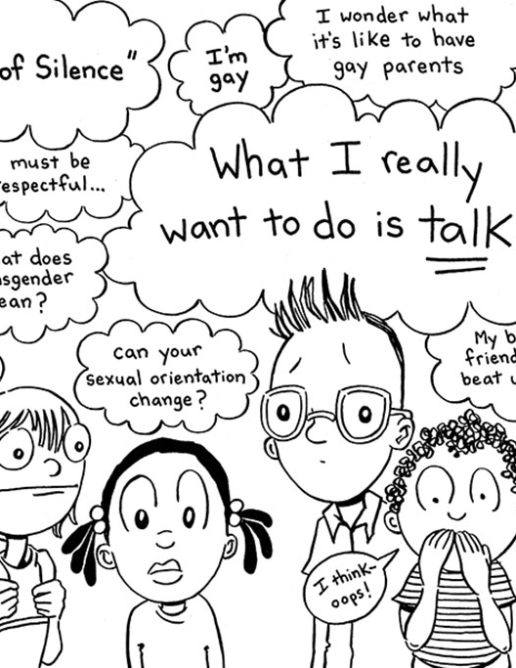
When the Day of Silence doesn’t work at a middle school, staff and students look for another way to talk about LGBTQ issues.
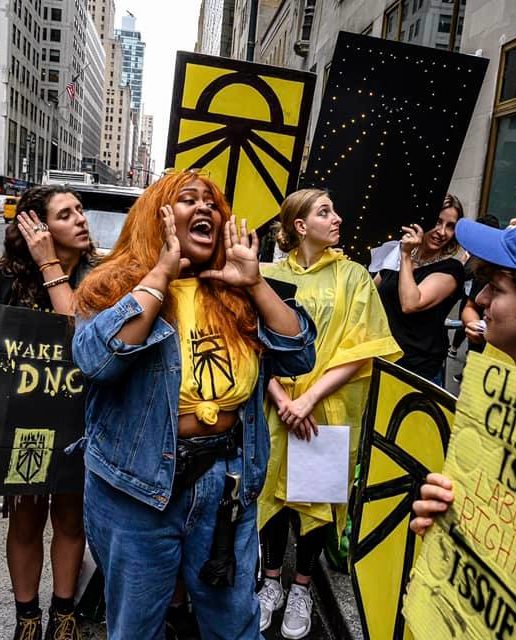
By Ursula Wolfe-Rocca At the end of August a group of student activists presented a letter to the Portland, Oregon, School Board regarding their plans to walk out of school […]
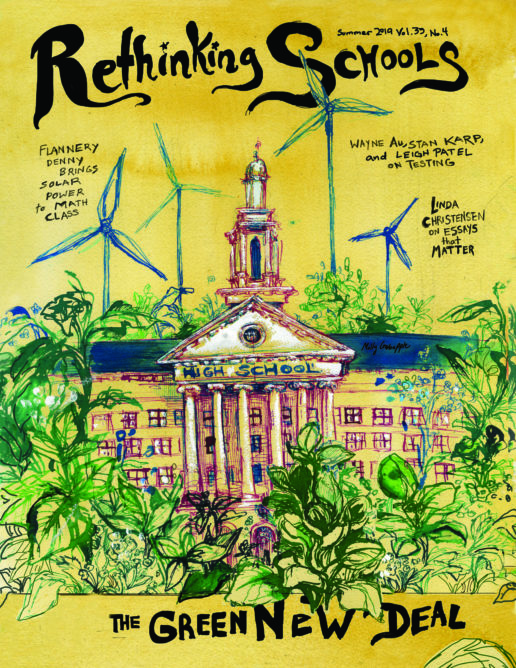
By the editors of Rethinking Schools As Mark Hertsgaard and Kyle Pope wrote recently in The Nation, “There is a runaway train racing toward us, and its name is climate change. […]